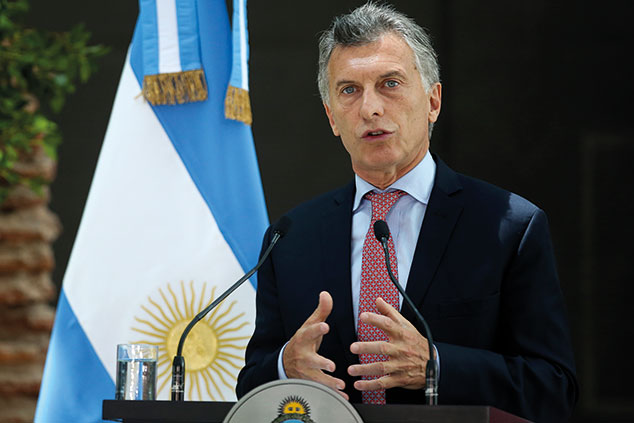
With a recession looming, markets have started to worry that Argentina could have trouble meeting its financing needs. The Argentinian peso has tumbled 55% against the US dollar this year. Because some 80% of Argentina’s sovereign debt is in dollars, a weakened peso makes repaying debts denominated in dollars more expensive.
Calling in the IMF
Macri had already called on the International Monetary Fund in May, and the response was a $50bn package in return for promises of tighter fiscal discipline. That may not be enough to save Argentina. When Macri asked the IMF to speed up its payments last week, he was trying to reassure markets that the problem was being dealt with, but he merely succeeded in compounding fears that he might need even more assistance.
Argentina’s central bank raised interest rates from 45% to 60% to stop its currency from sinking further, but to no avail. The currency plunged more than 15%, suggesting investors don’t believe the country can bear such punishing rates, says Lanfgield. The yield on the government’s 100-year bond reached a record 10% as prices slid.
Argentina is hardly alone. Turkey’s currency, the lira, has fallen by 43.5% against the US dollar in 2018. Other emerging-market currencies are under pressure. The Indian rupee declined to a record low against the dollar last week, and has fallen by 10% since the start of the year. The Indonesian rupiah has slipped by 7.6% against the greenback in 2018.
A squall, not a storm
Nonetheless, “there is no need for conniptions about contagion”, notes Lex in the Financial Times. Emerging-market currencies only fell 2% against the dollar in August. “This is not extraordinary in an illiquid market.” Just as Turkey’s problems did not bring about an emerging-market collapse, neither should Argentina’s.
These two countries “are the authors of their own misfortune”, as John Authers points out in the FT. Both have appeared too relaxed about inflation recently, and in Turkey’s case the government is actively undermining the central bank. Beyond these two trouble-spots, the turbulence looks par for the course at a time when the rising dollar and higher US interest rates are drawing capital away from traditionally risky assets such as emerging markets, some of which (including India and Indonesia) have current-account deficits financed with foreign cash.
On the whole, as we have often pointed out, emerging markets have grown more resilient to a reversal of capital flows thanks to structural improvements over the past two decades, such as a reduction in foreign-currency debt and the defeat of inflation. This is a squall, not a storm.